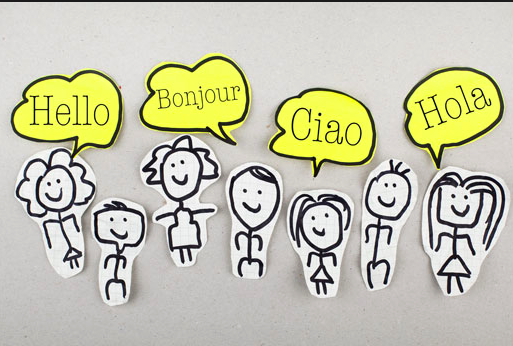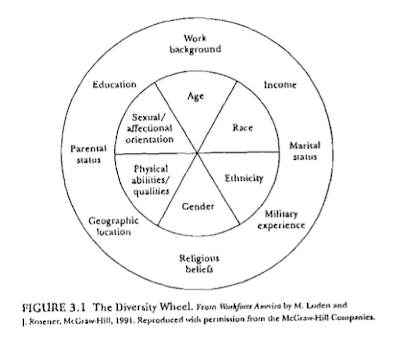The standard form of English.
Collier explains 7 guidelines on how o teach english to second-language learners. and Rodriguez adds his personal experience which I loved it. I can see so many families going through the same experience his family went trough. The loss of individuality, when silence and fear makes part of your internal conversation. When isolation is the easier choice, because lets be honest, life is already to tough in a daily basis, and the feeling of risk and humiliation shouldn't be part when the only thing you are trying to do is talk.
 #4 Teach the standard form of English and students' home language together with an appreciating of dialect differences to create an environment of language recognition in the classroom. (pg. 227)
#4 Teach the standard form of English and students' home language together with an appreciating of dialect differences to create an environment of language recognition in the classroom. (pg. 227)
The importance of home dialect and the loss of individuality when teachers are not able to meet this expectations is also expressed in Delpit "Other People's Children". A teacher who is able to recognize the importance of home dialect and not punish the children for communicating and expressing in a different way which " only this way the classroom becomes the ideal setting to affirm the importance of home dialect and its appropriate use within the community in which it is spoken while at the same time students are taught the standard variety" ( Collier, pg. 228). Delpit similar added a quote from Martha Demientiff (a masterful Native American Teacher) " In the village, everyone speaks informally dos of the time unless there is a potlatch or something. You don't think a out it, you don't wowrrt about following any rules- its its sort of like when you eat food at picnic- nobody pays attention to whether you use your fingers or a fork, and it feels so good. Now, Formal English is more like a formal dinner. There are rules to follow where the knife and fork belongs (...)" (Delpit, pg 41).
"I suggest that students must be taught the codes needed to participate fully in the mainstream of American life, not by being forced (...), but rather within the context of meaningful communicative endeavors; that they must allow the resorce of the teacher's expert knowledge, while being helped to acknowledge their own expertness, and that even while students are assisted in learning the culture of power, they must also helped to learn about the arbitrariness of those codes and power relationship they represent"(Delpit, pg.45)
I needed to add: I feel when I think about bilingual kids, a lot time I imagine these boarding and private schools who teaches French, Mandarin, or German. I kept thinking about the kids I used to work with back in the South. Majority of them were hispanics with illegal families. Obviously they go to public schools and where its hard to believe they would follow any type of these guidelines (i am sure there are exceptions). We talked about the differences on access to education, good education, and high tech education. The segregation in the public school system and culture of power enforcing the codes and values. Then you add a kid who came to the country as immigrate, can barely speak english, and parents can barely speak english too (i.e. the language is not an option at home). This kid goes to a public school where the system is pretty much set up to fail, don't you think for a bilingual kids failure will come in full speed?
United States is one of the few countries that expect people to know how to speak english when they come to US and americans expect people to speak english when they are overseas. The effort is always to please the americans, but usually not the american finding a way to learn and communicate in the foreign language. My friend once told me "Its tough to learn a different because every time I leave the country people speak english to me"- tough life.
In a personal note:
I remember an american sir almost did not release my student visa because according to him there was no way a school was paying me to go here and study if I could barely speak english. After the school sent the embassy an extra paperwork saying they were aware of my english level, the guy looked at me and said "Good luck, because you will need luck!". I just couldnt speak. I spent 1 years very quiet and the only that could come out of my mouth was "I think, I don't know...". I had professors how would allow me to use a dictionary and I had professors who wouldn't. I had professors who would tell me "if you don't remember the word in english, just write in portuguese and I will translate it" and I had professors taking points out my test because english mistakes (and no, it was NOT an english class- my context was correct, but I wrote the word wrong). I still do not know how I wrote a thesis in english, but I know it was not good as I would like it to be... and the feeling of knowing that you could be so much better, but you are not because language barrier- destroys me. In the end of the day, anytime I would have an argument with an american, the counterattack would ALWAYS make fun of my accent or correct my english, people would laugh and the conversation would be over.
Being bilingual is very rewarding and frustrating sometimes. I recognized and appreciate everything I learned and gained spending the past 7 years in U.S. It is nice to know that right now I feel very comfortable speaking the universal language and I am capable to go to any country in the world and communicate with people. Not only communicate, but I believe my english is a good shape that I can talk about anything and everything with anyone. However, 7 years past I still struggle in a daily basis. Although I am very lucky to have great bosses and professors who support me and are patient to my grammar mistakes or misunderstanding. There are and were moments where not being able to do write something without doubting myself start to get tiring, especially when it can be easily connected with my intelligence or my ability to get things done. Every class, every year, every book, its a new vocabulary. I first learn what it means, then I learn how to read, then at some point I learn how to say, and hopefully I learn how to write. However, it takes long time to a point that I learn how to think using a determinant vocabulary. I am in a moment that I don't have to translate words anymore, but at the same time, if I don't remember the words it is just because it is too new and raw for me. I actually dream and think in English, but if I get very nervous I forget the words or my sentences doesn't make sense anymore. Or even though I had spent the last 10 years in school, I still struggle to write a paper in English. I am afraid of mistakes and my vocabulary becomes very limit. I am very proud of my english, every time I go overseas people always mentioned how fluent I sound, but it is tough to know I will always struggle to write things or to become academically comfortable and independent.
 #4 Teach the standard form of English and students' home language together with an appreciating of dialect differences to create an environment of language recognition in the classroom. (pg. 227)
#4 Teach the standard form of English and students' home language together with an appreciating of dialect differences to create an environment of language recognition in the classroom. (pg. 227)The importance of home dialect and the loss of individuality when teachers are not able to meet this expectations is also expressed in Delpit "Other People's Children". A teacher who is able to recognize the importance of home dialect and not punish the children for communicating and expressing in a different way which " only this way the classroom becomes the ideal setting to affirm the importance of home dialect and its appropriate use within the community in which it is spoken while at the same time students are taught the standard variety" ( Collier, pg. 228). Delpit similar added a quote from Martha Demientiff (a masterful Native American Teacher) " In the village, everyone speaks informally dos of the time unless there is a potlatch or something. You don't think a out it, you don't wowrrt about following any rules- its its sort of like when you eat food at picnic- nobody pays attention to whether you use your fingers or a fork, and it feels so good. Now, Formal English is more like a formal dinner. There are rules to follow where the knife and fork belongs (...)" (Delpit, pg 41).
"Do not think of yourself as a remedial teacher expected to correct so-called ' deficiencies' of your students" (Collier, pg. 226)
One of my favorite parts of Collier chapter is when she talks about not knowing who to speak english is not a deficiency and it doesnt explains the lack of success in classroom. She mentioned in the third and fourth guideline how affirming that the home language is not wrong, vulgar or bad. But the goal would be helping and supporting the child with the differences in dialect accepting and giving complete credence to this differences. Educators who hold a strictly view strictly view of right and wrong education causes severe problems in the total learning process. Similar to Delpit, Collier does not ignore the importance of learning academic language proficiency, but instead there is a balance in the learning and how educators teaches both languages,
"I suggest that students must be taught the codes needed to participate fully in the mainstream of American life, not by being forced (...), but rather within the context of meaningful communicative endeavors; that they must allow the resorce of the teacher's expert knowledge, while being helped to acknowledge their own expertness, and that even while students are assisted in learning the culture of power, they must also helped to learn about the arbitrariness of those codes and power relationship they represent"(Delpit, pg.45)
"Everything depends on one key concept, a crucial point of view. The key os the true appreciation of the different linguistic and culture values that students brings into classroom" (Collier, pg. 223)
United States is one of the few countries that expect people to know how to speak english when they come to US and americans expect people to speak english when they are overseas. The effort is always to please the americans, but usually not the american finding a way to learn and communicate in the foreign language. My friend once told me "Its tough to learn a different because every time I leave the country people speak english to me"- tough life.
#5 "Do not forbid young students from code-switching in the classroom. Understand the functions that code-switching serves." (Collier, pg. 229)
I remember an american sir almost did not release my student visa because according to him there was no way a school was paying me to go here and study if I could barely speak english. After the school sent the embassy an extra paperwork saying they were aware of my english level, the guy looked at me and said "Good luck, because you will need luck!". I just couldnt speak. I spent 1 years very quiet and the only that could come out of my mouth was "I think, I don't know...". I had professors how would allow me to use a dictionary and I had professors who wouldn't. I had professors who would tell me "if you don't remember the word in english, just write in portuguese and I will translate it" and I had professors taking points out my test because english mistakes (and no, it was NOT an english class- my context was correct, but I wrote the word wrong). I still do not know how I wrote a thesis in english, but I know it was not good as I would like it to be... and the feeling of knowing that you could be so much better, but you are not because language barrier- destroys me. In the end of the day, anytime I would have an argument with an american, the counterattack would ALWAYS make fun of my accent or correct my english, people would laugh and the conversation would be over.
"The teacher corrects no errors, but instead endeavors to be supportive and responsive"
(pg. 234).
What age this concept expires?!
Being bilingual is very rewarding and frustrating sometimes. I recognized and appreciate everything I learned and gained spending the past 7 years in U.S. It is nice to know that right now I feel very comfortable speaking the universal language and I am capable to go to any country in the world and communicate with people. Not only communicate, but I believe my english is a good shape that I can talk about anything and everything with anyone. However, 7 years past I still struggle in a daily basis. Although I am very lucky to have great bosses and professors who support me and are patient to my grammar mistakes or misunderstanding. There are and were moments where not being able to do write something without doubting myself start to get tiring, especially when it can be easily connected with my intelligence or my ability to get things done. Every class, every year, every book, its a new vocabulary. I first learn what it means, then I learn how to read, then at some point I learn how to say, and hopefully I learn how to write. However, it takes long time to a point that I learn how to think using a determinant vocabulary. I am in a moment that I don't have to translate words anymore, but at the same time, if I don't remember the words it is just because it is too new and raw for me. I actually dream and think in English, but if I get very nervous I forget the words or my sentences doesn't make sense anymore. Or even though I had spent the last 10 years in school, I still struggle to write a paper in English. I am afraid of mistakes and my vocabulary becomes very limit. I am very proud of my english, every time I go overseas people always mentioned how fluent I sound, but it is tough to know I will always struggle to write things or to become academically comfortable and independent.



I really liked how you connected your personal experience to these two articles! Sometimes I take for granted how difficult it is to learn all those formal rules of "Formal English" because I've had a good 30 years to learn those rules. As a teacher of students with limited or interrupted formal education, it's definitely challenging to teach those formal rules, and I know it's more challenging to learn them.
ReplyDeleteLike Chris said, I love how you connected your personal experience to these articles. I think it is very helpful to have a real life connection for you to share to us with us how rewarding and frustrating it can be. I hope that some of the students that we all work with find the rewarding part of it. It is amazing to be able to speak in two languages. I find it very sad to the people who would mark down your grades because of the English, even though it wasn't an English class and you knew the content.
ReplyDeleteSkeff I am so glad that you talked about your personal experiences because it makes what you're saying even more powerful. It also gives you an advantage to know and understand what other students who do not know English are going through and feel when in different settings and situations. It relates back to Delpit and the rules of power and SCWAAMP. In which those that have this "privilege" of speaking English in American are therefore holding these rules of power in society.
ReplyDelete